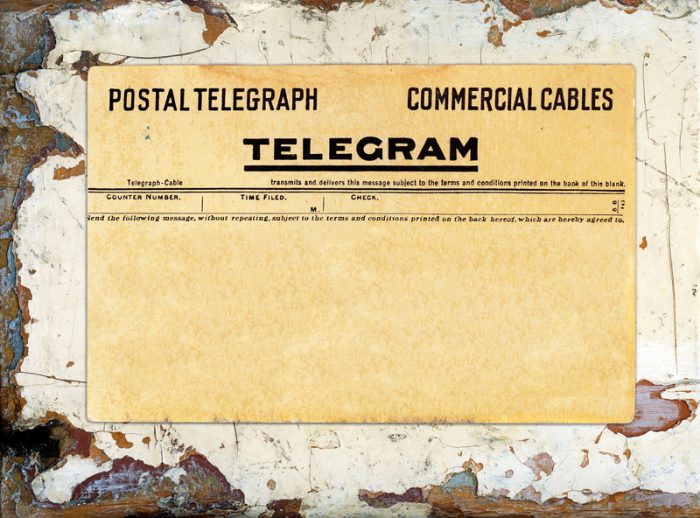This December 29th, Belgium will put an end to a service that has been used for nearly two centuries. It will send its final telegram.
Okay...and what's a telegram, you ask? (To be clear, we don't mean the messaging app with the same name.) Simply put, the telegram is an electronically sent message. In many ways, it is the original text message.
And Belgium was one of the last countries to offer them.
Morse magic
A Western Union telegraph station in the 1930s. (Getty Embed)
Unlike smartphones and instant messaging, the telegram has been around for over 180 years. In the days before the telephone (which was invented in 1876), it stood alone as the quickest way to send a message to someone. Here's how it worked.
The telegram was sent using electronic signals that travelled along cables or (later) radio waves. The signals were sent and received using a device called a telegraph. You would pay a service to deliver your message, or telegram, to someone. Instead of sending words, your message was translated into a code, known as Morse code. (This code is named after Samuel F. B. Morse, who invented — wait for it — the telegraph.) Then a receiver would translate your message back into words, and a typed telegram would be delivered by the local post office to the person.
Revolutionary idea
Millions of people used telegrams to send well wishes, condolences, and important information. (Getty Embed)
At the time, the idea of being able to send information from, say, New York to London, was revolutionary. Remember, there's the entire Atlantic Ocean in the way!
Before this invention, you'd have to send a letter by ship, which would take days or weeks to arrive. It felt like magic, and even into the 1930s, a country like the United States was sending 200 million telegrams a year.
Telegrams also changed how people wrote messages. People were charged by the word, so it was important to be brief. And instead of writing a period, every sentence was ended with a word: Stop.
Sorry to see you stop. Stop
Though a telegram couldn't move fast enough to save the Titanic, it was what led other ships to the scene to rescue survivors. (Getty Embed)
Of course, many inventions led to the end of the telegram. The telephone, air mail, couriers, email, instant messaging, Skype, video calling... We have so many ways to send information that paying about $30 for a 20-word telegram just isn't going to happen. (At least, not outside the 10 or so Belgian businesses that have still been using the service until now.)
But as Belgium officially joins most of the world in putting its telegraph to sleep, it's worth remembering how it changed the planet.
THANKS FOR EVERYTHING, TELEGRAM. STOP
 Though barely used today, telegrams were once the quickest way to send a message. (Jill Battaglia | Dreamstime)
Though barely used today, telegrams were once the quickest way to send a message. (Jill Battaglia | Dreamstime)









